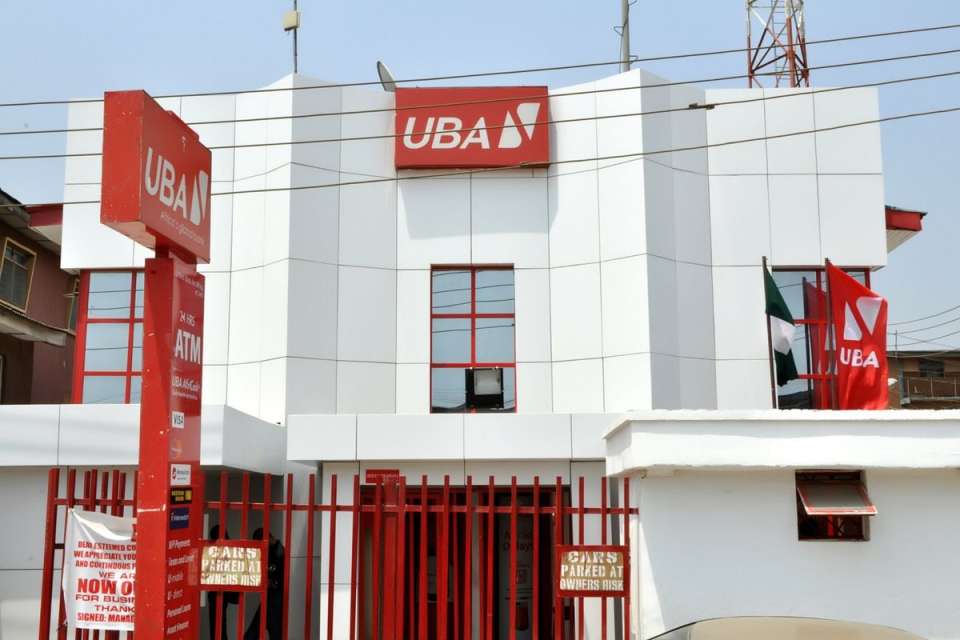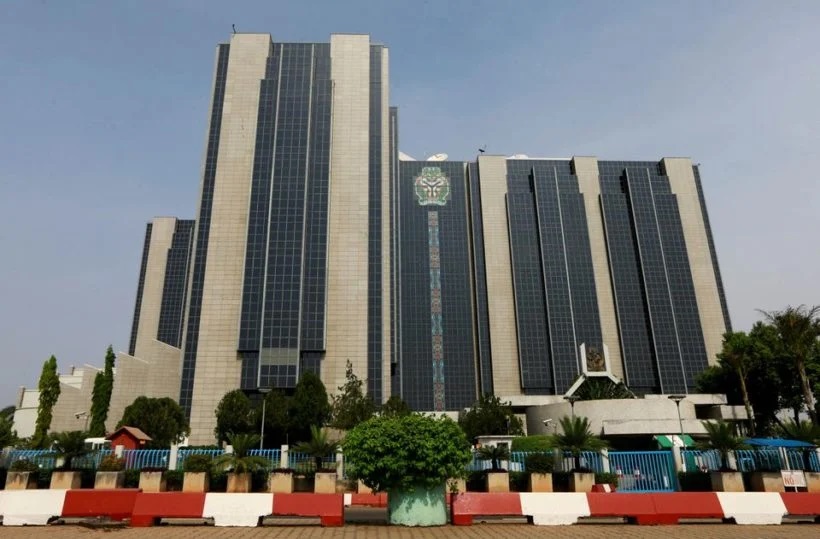Banking
UBA to Realign Funding Mix for Lower Cost of Funds

**Trims NPL Ratio to 5.62%
By Dipo Olowookere
The management of United Bank for Africa (UBA) Plc has expressed its desire to make efforts to reduce its cost of funds by realigning its funding mix.
Chief Financial Officer (CFO) of the lender, Mr Ugo Nwaghodoh, made this disclosure while commenting of the bank’s mid-year financial statements released at the weekend to the Nigerian Stock Exchange (NSE).
“I am particularly delighted that the key ratios are trending in the right direction. The net interest margin is trending upwards and will continue to improve as we responsibly grow the risk asset portfolio and realign the funding mix to lower our cost of funds.
“The cost-to-income ratio trended down to 60 percent with our focus on balance sheet and operational efficiencies which should enable us deliver our medium-term CIR target. Capital adequacy ratio increased to 28 percent from 23.6 percent in December 2018, providing a very strong buffer for asset growth,” he stated.
Continuing, Mr Nwaghodoh stated that, “We had a strong start in the year given the prevailing macroeconomic environment across our various markets.”
According to him, “There is better diversification in profit contribution as our banking subsidiaries across Africa contributed 38 percent of the profit before tax, whilst our recently repositioned UK business contributed 4 percent.”
The CFO further said that, “We expect this dispersion to continue, as the subsidiaries consolidate on their share of the various markets.”
Also airing his views on the results, the Group Managing Director/CEO of UBA, Mr Kennedy Uzoka, stated that, “I am pleased with the half performance of the Group, having delivered 14 percent growth in gross earnings and 21 percent growth in profit before tax.”
He said, “Despite the subdued yield environment in some of our large markets, we achieved a 9 percent growth in interest income and defended the net interest margin.
“We also achieved a 39 percent growth in our electronic banking revenues, as we broaden and deepened our digital banking play across Africa. Revenues from our remittance and funds transfer businesses grew 69 percent and 53 percent respectively. All these factors attest to the efficacy of our strategies and the resilience of our business model.”
Mr Uzoka expressed optimism that the “ongoing group-wide transformation program will in the quarters ahead, enable the bank deliver substantial operational efficiencies and best-in-class customer service, which will ultimately boost earnings.”
According to him, “We sustained our asset quality with the NPL ratio down to 5.62 percent, from 6.45 percent as at 2018FY. We will continue to adopt best practice standards to grow and manage the portfolio in the quarters ahead.”
An analysis of the half-year financial income of UBA showed impressive growth across key performance indices as well as a significant contribution from its African subsidiaries.
In spite of the increasingly unpredictable environment witnessed in some of its countries of operations, the pan African financial institution delivered double digit growth in its profit before tax as it rose by 21 percent to N70.3 billion for the half year to June 2019, up from N58.1 billion recorded in the similar period of 2018, just as the profit after tax also improved to N56.7 billion, a 29.6 percent growth compared to N43.8 billion achieved in the corresponding period of 2018. The profit for the first half of the year, translated to an annualised return on average equity of 21.7 percent.
The financial statements further revealed that UBA recorded a 14 percent year-on-year rise in top-line, with gross earnings of N293.7 billion, compared with N257.9 billion recorded in the corresponding period of 2018.
Analysts say that this result emphasises the capacity of the Group to deliver a strong performance through economic cycles in spite of the overall challenging business environment.
As at 30 June 2019, the bank’s total assets grew by 4.8 billion, crossing the N5 trillion mark to N5.10 trillion, while customer deposits also rose by 4.8 percent to N3.51 trillion from N3.35 trillion as at December 2018. This growth trajectory underscores UBA’s market share gain, as it increasingly wins customers through its revitalized customer service culture coupled with innovative digital banking offerings. The bank’s shareholders’ funds remained strong at N542.5 billion, reflecting its strong capacity for internal capital generation.
In line with its culture of paying both interim and final cash dividend, the board of the lender declared an interim dividend of 20 kobo per share for every ordinary share of 50 kobo each held by its shareholders.
UBA, which prides itself as Africa’s global bank, was founded 70 years ago in Nigeria and today, operates in 20 African countries and in the United Kingdom, the USA and with presence in France.
The financial firm serves over 17 million customers across the globe with more than 1000 branches and touch points. In 2018, the bank received the award of Africa’s Best Digital Bank by the Banker’s magazine.
Banking
We Now Pay Depositors of Failed Bank Within Days—NDIC

By Adedapo Adesanya
The Nigeria Deposit Insurance Corporation (NDIC) says depositors of failed banks in Nigeria can now access their insured funds within days.
The corporation said the development is a part of ongoing reforms aimed at strengthening confidence in the country’s financial system.
The chief executive of NDIC, Mr Thompson Sunday, disclosed this on Thursday at the NDIC Special Day of the 47th Kaduna International Trade Fair, noting that recent interventions had significantly improved the speed and efficiency of depositor compensation.
Represented by Mrs Regina Dimlong, the Assistant Director of Communications and Public Affairs, Mr Sunday said the corporation had successfully deployed the Bank Verification Number (BVN) system to facilitate prompt payments to customers of recently failed banks, including Heritage Bank Limited, Union Homes Plc and Aso Savings and Loans Plc.
“Depositors were paid within days of closure without the need to fill physical forms or visit NDIC offices.
“This is a part of our reform efforts to make depositor protection faster, simpler and more transparent,” he said.
According to him, the reforms were designed to restore public confidence in the banking system and prevent panic withdrawals, especially during periods of financial stress.
Mr Sunday explained that NDIC’s mandate spans deposit insurance, bank supervision, distress resolution and liquidation of failed banks, adding that the Corporation works closely with the Central Bank of Nigeria (CBN) to ensure early detection of risks in insured institutions.
He disclosed that in 2024, NDIC reviewed its deposit insurance framework, increasing coverage for depositors of Deposit Money Banks, Mobile Money Operators and Non-Interest Banks to N5 million, while customers of Microfinance Banks, Primary Mortgage Banks and Payment Service Banks are now covered up to N2 million.
He noted that the revised thresholds now guarantee full protection for about 99 per cent of depositors nationwide, particularly small savers and low-income earners.
The NDIC boss urged Nigerians to ensure their BVNs are properly linked to their bank accounts, stressing that this had become the primary channel for accessing insured deposits in the event of bank failure.
Banking
Nigeria Gets Permanent Seat on African Central Bank Board

By Adedapo Adesanya
Nigeria has secured a major strategic gain at the ongoing 39th African Union Summit, after securing a permanent seat on the board of the African Central Bank.
The Minister of Foreign Affairs, Mr Yusuf Tuggar, confirmed this at the summit on Friday, highlighting it as a significant milestone for both Nigeria and the West African region.
The African Central Bank (ACB) is one of the original five financial institutions and specialised agencies of the African Union (AU).
“Importantly, Nigeria has been given the hosting of the African Monetary Institute and the African Central Bank. Not only that, in today’s plenary, Nigeria was confirmed a seat on the board of the African Central Bank. This is huge,” he said.
He stated that the development represents a diplomatic breakthrough, mentioning that the move faced initial opposition from some member states.
“It is something that was initially resisted by some countries, so now we have a permanent seat on the African Central Bank board. It’s a major success,” he added.
This year’s summit carries the theme Assuring Sustainable Water Availability and Safe Sanitation Systems to Achieve the Goals of Agenda 2063, the sessions will focus on advancing continental commitments to sustainable water management and improved sanitation, critical pillars for health, agricultural productivity, and the broader development aspirations of the AU’s Agenda 2063 framework.
Beyond financial governance, Nigeria and the West African bloc also recorded progress in elections to the Peace and Security Council, the African Union’s highest decision-making body on conflict and security matters.
The delegation announced that “Côte d’Ivoire, Sierra Leone, and the Republic of Benin have been elected,” with Benin securing a fresh term while the other two countries were re-elected.
The Peace and Security Council also convened to deliberate on the situations in Sudan and Somalia. Nigeria voiced strong reservations over Sudan’s potential readmission into the continental body.
“Nigeria voiced its reservations about Sudan being readmitted because, as you know, there are two warring factions in Sudan,” Tuggar stated.
“We reminded the Peace and Security Council that we have to abide by the rules and regulations of the African Union. If there has been an unconstitutional change of government, then the country should not be allowed to participate, and that was carried.”
The summit also outlined its 2026 theme: water sustainability. The Nigerian representative underscored the country’s strategic and demographic significance in advancing that agenda.
“Nigeria was created out of the confluence of the River Niger and the River Benue. So water is very important,” he said.
“We are the largest country in Africa, with a population of 230 million people. We’re going to be 400 million in the next 24 years. So water is a source of life. It’s very important, and we’re playing a very pivotal role in implementing the programs that are being set for the theme of the year.”
Banking
Standard Bank Hosts 2nd African Markets Conference

By Modupe Gbadeyanka
The second African Markets Conference (AMC) will take place in Cape Town, South Africa, from Sunday, February to Tuesday, February 24, 2026.
The event, hosted by Standard Bank, will bring together global institutional investors, sovereign wealth funds, and African policymakers to catalyse the flow of capital into the continent’s most critical sectors.
The theme for this year’s edition is Mobilising Global Capital at Scale for Africa’s Growth and Development.
AMC 2026 will host a high-level delegation of decision-makers, ensuring that the dialogue leads to tangible commitments.
The conference will be structured around five high-impact pillars designed to move the needle on investment, including prioritising infrastructure as an asset class, accelerating the energy transition, deepening African capital markets and mobilising private capital, enabling intra-African trade and flows of capital, and addressing Africa’s sovereign debt and cost sustainability.
It is estimated that by 2050, Africa will add one billion people, more than half in cities, yet it invests only $75 billion of the $150 billion it needs annually for infrastructure. Standard Bank aims to use AMC 2026 to ensure that African priorities remain at the centre of the global financial discourse.
“This year’s engagement bridges the gap between policy ambitions and market realities. Africa urgently needs practical measures to deepen capital pools, improve market liquidity, and strengthen regulatory frameworks that give investors the confidence to deploy capital at scale.
“Mobilising capital is not just about funding projects; it is about building the foundation of a more balanced and inclusive global economy,” the chief executive of Corporate and Investment Banking at Standard Bank Group, Luvuyo Masinda, stated.
-

 Feature/OPED6 years ago
Feature/OPED6 years agoDavos was Different this year
-
Travel/Tourism10 years ago
Lagos Seals Western Lodge Hotel In Ikorodu
-

 Showbiz3 years ago
Showbiz3 years agoEstranged Lover Releases Videos of Empress Njamah Bathing
-

 Banking8 years ago
Banking8 years agoSort Codes of GTBank Branches in Nigeria
-

 Economy3 years ago
Economy3 years agoSubsidy Removal: CNG at N130 Per Litre Cheaper Than Petrol—IPMAN
-

 Banking3 years ago
Banking3 years agoSort Codes of UBA Branches in Nigeria
-

 Banking3 years ago
Banking3 years agoFirst Bank Announces Planned Downtime
-

 Sports3 years ago
Sports3 years agoHighest Paid Nigerian Footballer – How Much Do Nigerian Footballers Earn











